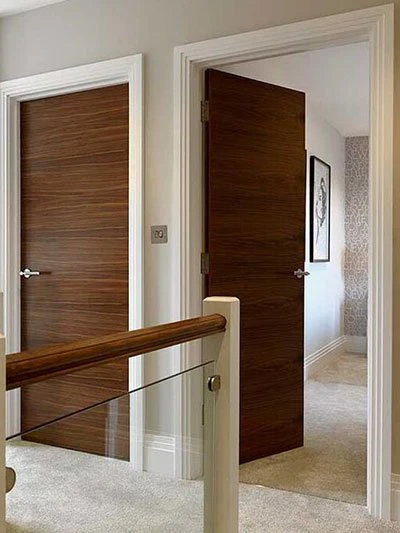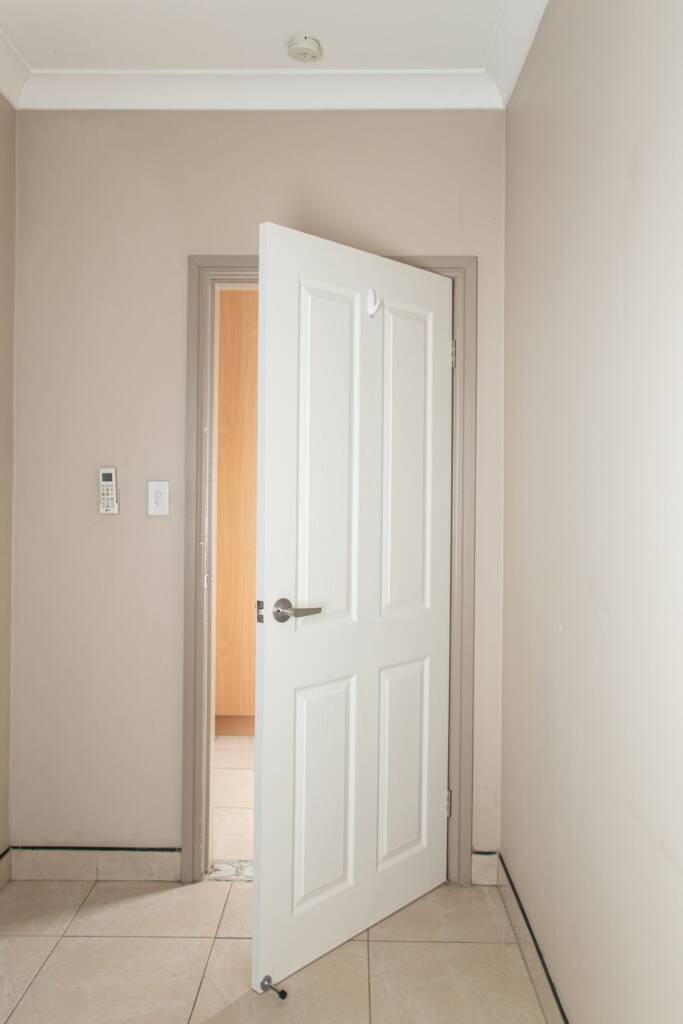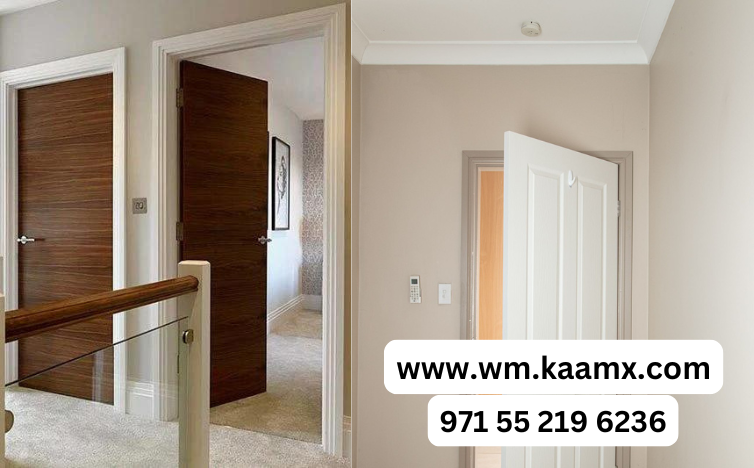When it comes to soundproofing a room or building, the type of door you choose can make a significant difference. Solid core and hollow core doors are the two primary options available, and each has its own advantages and drawbacks. In this guide, we will compare Solid Core vs Hollow Core Doors, these two types of doors focusing on their soundproofing capabilities, to help you make the best decision for your space.
What Are Solid Core Doors?
Solid core doors are constructed from a solid piece of material, typically wood or composite. These doors are dense and heavy, providing a substantial barrier against sound. The solid construction allows these doors to block out a significant amount of noise, making them ideal for spaces where privacy and quiet are important.
 Advantages of Solid Core Doors for Soundproofing:
Advantages of Solid Core Doors for Soundproofing:
- Superior Noise Reduction: The density of solid core doors effectively blocks sound waves, preventing them from passing through.
- Durability: Solid core doors are more resistant to damage and wear, making them a long-lasting choice.
- Enhanced Security: The solid construction not only blocks sound but also offers better protection against forced entry.
Disadvantages of Solid Core Doors:
- Cost: Solid core doors are generally more expensive than hollow core options.
- Weight: The heavy weight of solid core doors can make them more challenging to install and may require stronger hardware.
What Are Hollow Core Doors?
Hollow core doors, as the name suggests, have a hollow interior. These doors are typically made with a thin veneer or outer layer of wood, surrounding a core that may contain cardboard or another lightweight material. Hollow core doors are much lighter and less expensive than solid core doors, but they also offer less soundproofing.
 Advantages of Hollow Core Doors:
Advantages of Hollow Core Doors:
- Affordability: Hollow core doors are budget-friendly, making them a popular choice for interior doors in residential homes.
- Ease of Installation: The lightweight design makes hollow core doors easier to handle and install.
- Versatility: Hollow core doors come in various styles and finishes, allowing for more design options.
Disadvantages of Hollow Core Doors for Soundproofing:
- Poor Sound Insulation: The hollow interior does little to block sound, making these doors ineffective for soundproofing purposes.
- Less Durability: Hollow core doors are more prone to damage and wear, especially in high-traffic areas.
- Lower Security: The lightweight construction offers minimal resistance to forced entry.
Which Is Better for Soundproofing?
When it comes to soundproofing, solid core doors are the clear winner. The dense, solid construction of these doors provides superior noise reduction compared to hollow core doors. If soundproofing is a priority in your home or office, investing in solid core doors is the best choice.
However, if budget constraints or the need for lightweight doors are more important, hollow core doors may still be a viable option for less critical areas where soundproofing is not a primary concern.
Contact Muhammad Shaheen Carpentry at 971 55 219 6236, and discover the transformative science of soundproofing for your space.
Conclusion
Choosing between solid core and hollow core doors depends on your specific needs and priorities. For soundproofing, solid core doors offer significantly better noise reduction and durability. While they come at a higher cost, the benefits in terms of privacy and peace of mind often outweigh the additional expense. Hollow core doors, on the other hand, are more affordable and easier to install, but they fall short in soundproofing capabilities. Understanding these differences will help you make an informed decision when selecting doors for your space.

